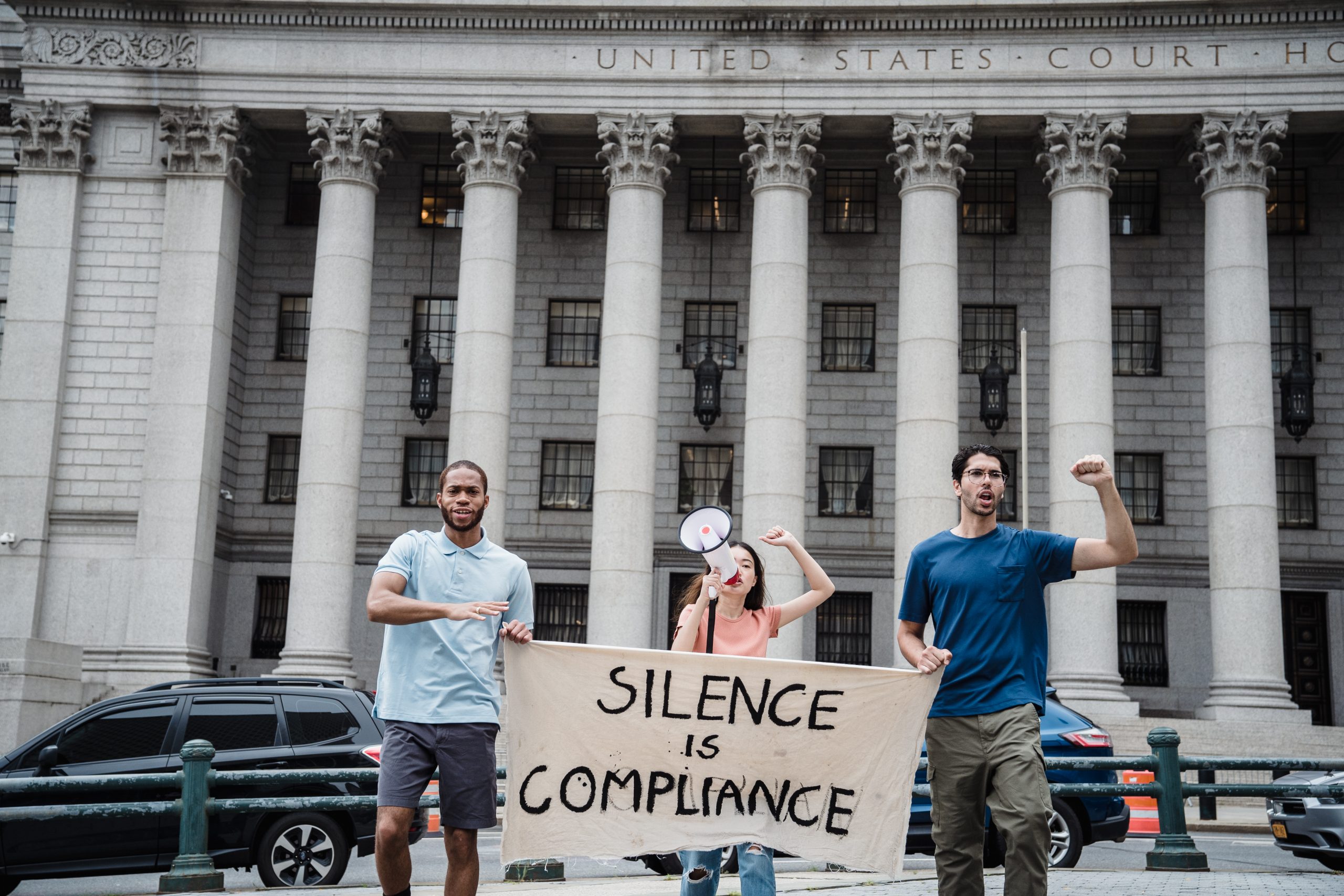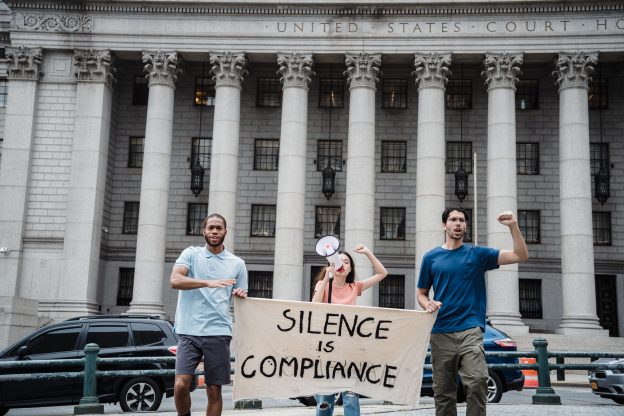In today’s digital landscape, where every tweet, post, and status update can potentially impact a company’s reputation, businesses must be vigilant in ensuring compliance with relevant regulations and laws. Social media claims compliance solutions offer an invaluable tool for businesses to navigate this complex terrain, helping them understand the legal implications of their online presence and minimize the risk of costly legal disputes. By employing state-of-the-art technologies and industry best practices, these solutions provide businesses with the necessary guidance to maintain compliance while leveraging the full potential of social media as a marketing and communication tool. In this article, we will explore the key benefits and features of social media claims compliance solutions, as well as address commonly asked questions to empower businesses in effectively managing their online presence while safeguarding their legal interests.

Understanding Social Media Claims Compliance
In today’s digital age, social media has become a powerful tool for businesses to connect with their target audience, build brand awareness, and promote their products or services. However, with the vast amount of information shared on social platforms, there is a need for businesses to ensure compliance with regulations and guidelines when making claims. This article will delve into the importance of compliance for social media claims, the legal requirements businesses must adhere to, and the benefits of implementing a social media claims compliance solution.
Why Compliance is Important for Social Media Claims
Compliance with regulations and guidelines regarding social media claims is crucial for businesses to maintain transparency, protect consumers, and avoid legal implications. Making false or misleading claims can result in reputational damage, monetary penalties, and even legal action. By adhering to compliance standards, businesses can establish trust with their audience, enhance their brand reputation, and mitigate the risk of regulatory scrutiny.

1. Legal Requirements for Social Media Claims Compliance
To ensure compliance with social media claims, businesses must be aware of the legal requirements imposed by regulatory agencies and adhere to the guidelines they set forth.
1.1 Regulatory Agencies and Guidelines
The following regulatory agencies play a significant role in overseeing social media claims compliance:
1.1.1 Federal Trade Commission (FTC)
The FTC is a U.S. government agency responsible for regulating and enforcing consumer protection laws. It has specific guidelines, such as the Endorsement Guides, that outline the requirements for businesses when making claims on social media platforms. These guidelines emphasize the importance of disclosing any material connections between businesses and endorsers, as well as ensuring that claims are truthful, substantiated, and not misleading.
1.1.2 Advertising Standards Authority (ASA)
The ASA is a self-regulatory organization in the UK that ensures advertising aligns with ethical standards. It has a code of conduct that applies to social media claims, requiring businesses to ensure their claims are accurate, not misleading, and can be substantiated. The ASA also emphasizes the importance of clearly labeling sponsored or paid content to maintain transparency with consumers.
1.2 Key Compliance Considerations
In addition to understanding the regulations imposed by regulatory agencies, businesses must consider the following key compliance factors when making claims on social media:
1.2.1 Truthful and Substantiated Claims
It is essential for businesses to ensure that any claims made on social media are truthful and can be supported by evidence. Misleading or false claims not only violate regulatory guidelines but also erode consumer trust and damage brand reputation. Businesses should thoroughly research and verify the accuracy of their claims before sharing them on social platforms.
1.2.2 Transparent Disclosure of Sponsored Content
When businesses collaborate with influencers or endorse products on social media, it is crucial to disclose any material connections or financial arrangements. Transparency in disclosing sponsored content helps consumers make informed decisions and prevents misleading endorsements. Clear and conspicuous disclosures should be prominently placed within the post to ensure they are easily noticed and understood by consumers.
6.5 How can a social media claims compliance solution benefit my business?
Implementing a social media claims compliance solution can bring several benefits to businesses:
-
Risk Mitigation: A comprehensive compliance solution helps businesses identify and rectify any potential compliance issues, reducing the risk of regulatory scrutiny, penalties, and legal consequences.
-
Efficiency and Accuracy: Compliance solutions streamline the claims review process, ensuring accurate and compliant messaging before it is published on social media platforms. This saves time and resources, allowing businesses to focus on other marketing activities.
-
Brand Reputation Enhancement: By maintaining compliance with regulations, businesses enhance their brand reputation, fostering consumer trust and loyalty. Compliance communicates a commitment to honesty, transparency, and integrity.
-
Consistency across Platforms: Social media claims compliance solutions enable businesses to maintain consistent messaging and adherence to regulations across multiple social media platforms. This consistency strengthens brand identity and minimizes the risk of contradictory or misleading claims.
-
Peace of Mind and Expert Guidance: By partnering with a social media claims compliance solution provider, businesses can have peace of mind knowing that experts are monitoring and guiding their compliance efforts. This ensures businesses stay up-to-date with the evolving regulatory landscape and can focus on their core operations.
In conclusion, compliance with regulations and guidelines for social media claims is of utmost importance for businesses utilizing social platforms. By understanding the legal requirements set forth by regulatory agencies such as the FTC and ASA, businesses can maintain transparency, protect consumers, and avoid legal repercussions. Implementing a social media claims compliance solution brings numerous benefits, including risk mitigation, efficiency, enhanced brand reputation, consistency, and expert guidance. To ensure your business is compliant and to learn more about social media claims compliance, contact our experienced team of professionals today for a consultation.

FAQs
Q: What are the consequences of non-compliance with social media claims regulations? Non-compliance with social media claims regulations can result in reputational damage, monetary penalties, and legal action. It can erode consumer trust, harm brand reputation, and lead to regulatory scrutiny.
Q: Can I mention my product’s benefits without providing substantiation on social media? No, it is essential to provide substantiation for any claims made on social media. Claims should be truthful, accurate, and supported by evidence to maintain compliance and avoid misleading consumers.
Q: How should I disclose sponsored content on social media platforms? Sponsored content should be disclosed clearly and conspicuously to ensure transparency. Use phrases such as “ad,” “sponsored,” or “paid partnership” to provide a clear indication to consumers that the content is sponsored.
Q: Do social media claims compliance solutions work for all types of businesses? Yes, social media claims compliance solutions can be tailored to suit the specific needs of different businesses across various industries. Whether you are a small business or a large corporation, implementing a compliance solution can benefit your business in terms of risk mitigation, efficiency, brand reputation, and peace of mind.
Q: How can I ensure consistency in compliance across multiple social media platforms? To ensure consistency, it is recommended to establish clear internal guidelines and processes for making claims on social media platforms. Additionally, partnering with a social media claims compliance solution provider can help streamline compliance efforts and ensure consistency across platforms.
